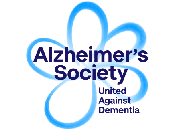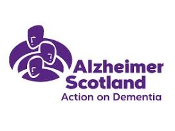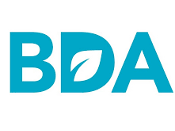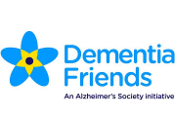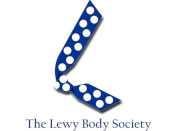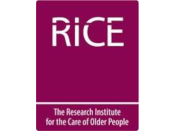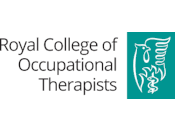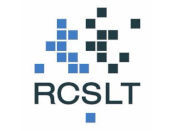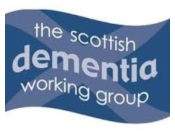
Living with dementia: medication management
Living with dementia: medication management
This factsheet is available for sponsorship, email marketing@dlf.org.uk
Sponsorship has no influence on our impartial content
Factsheet contents
- Introduction
- Alarms and medication reminder apps
- Pill or dosette boxes
- Pill dispensers with prompts
- Pill cutters and crushers
- Telecare enabled dispensers
- Medical safes
- Emergency medical and personal information
- Accessing your needs
- Provision of equipment
- Funding sources for care
- For further advice from us
- Contributors
- Useful organisations and resources
- References and further reading
Introduction
Following a diagnosis of dementia, you may be prescribed new medication which may have to be taken in conjunction with other daily pills. In some cases, this may be the first regular medication that you may have to take.
It is essential that all medication is taken as prescribed to avoid adverse effects to your health. Common concerns are ensuring that:
- medication is taken on time
- the correct dosage is taken
- a dose is not missed or taken again due to memory difficulties.
There are many devices on the market that can help overcome this issue.
Alarms and medication reminder apps
 One of the most common symptoms of dementia is short term memory loss and this can affect the ability to remember when to take tablets. Commonly, a person living with the early stages of dementia may need a simple reminder to take their medication.
One of the most common symptoms of dementia is short term memory loss and this can affect the ability to remember when to take tablets. Commonly, a person living with the early stages of dementia may need a simple reminder to take their medication.
Setting an alarm may be enough to prompt a person to take their medication throughout the day. Some watches or clocks have multiple alarms that can be set to sound alerts when medication should be taken. This could be used in combination with a dosette box (see below).
 If you use a smartphone or tablet and are confident using apps you could try a medication reminder app. These can be downloaded to compatible smartphones and are designed to give a reminder when medication is due.
If you use a smartphone or tablet and are confident using apps you could try a medication reminder app. These can be downloaded to compatible smartphones and are designed to give a reminder when medication is due.
The smartphone has to set up with the dosage times and names of the medication before the reminders will work. Some give an audible reminder, others just a visual reminder.
Pill or dosette boxes

If you are having difficulties remembering which tablets to take, how many to take or are having difficulties understanding the dispensing instructions on the tablet box, a dosette box or automatic medication dispenser can help.
Simple dosette boxes can be purchased with morning, lunch, dinner and night slots for tablets to be put into. In conjunction with an alarm, you can open the appropriate box for the day and time and take your prescribed medication.
Pill dispensers with prompts
 Pill boxes are available with flashing lights, alarms or vibration to prompt you to take your medication at preset times. Some people may find setting up these devices complex and fiddly so help from a family member or carer may be needed.
Pill boxes are available with flashing lights, alarms or vibration to prompt you to take your medication at preset times. Some people may find setting up these devices complex and fiddly so help from a family member or carer may be needed.
When considering these products, it is important to think about who is going to fill the boxes.
If you or your relative or carer are unable to do this then some pharmacies are able to prepare these packs on your behalf. These can be arranged following discussion with your GP and local pharmacist. Please note that not all pharmacies offer this service and a charge could be incurred.
The automatic dispenser works on the same principle, however this item has a mechanism which moves the medication into a slot to allow the individual to access their pills. The medication is locked inside the dispenser so you only have access to specific tablet or tablets prescribed at a given time - the medication that remains in the dispenser is inaccessible.
This may be of benefit if you are having difficulties recalling which day it is or you often open the wrong slot of your dosette box.
Using these items not only allows you to make sure you have taken your medication, but also allows your relatives or carers to check that medication is taken correctly.
Pill cutters and crushers
 If you should encounter problems swallowing tablets then a pill cutter and crusher can be used to make the tablet pieces smaller to enable them to be swallowed more easily or crushed into a powder form.
If you should encounter problems swallowing tablets then a pill cutter and crusher can be used to make the tablet pieces smaller to enable them to be swallowed more easily or crushed into a powder form.
It is essential that this is discussed with your GP or pharmacist first to ensure that the medication is suitable for cutting or crushing.
If difficulties continue then some medication is able to be provided in liquid form.
Telecare enabled pill dispensers
Telecare pill dispensers may also be available as part of a telecare package, they will automatically notify a monitoring centre if the medication is not tipped into the saucer so that it is ready to be taken. Some models can text or email a friend or relative if the medication is not taken.
As symptoms develop, a person with dementia may encounter difficulties using a dosette box independently and may require support from statutory services. It is often the case that they can prompt the person to take their medication but are not authorised to dispense it - i.e. remove medication from their individual boxes. In this case a dosette box can be very helpful as the carer is able to advise the person which slot to take their medication from, as each tablet has been placed in a specific section which is clearly marked with the correct day and time when it should be taken. This helps the individual and carer to ensure that the medication has been taken.
Medical safes
In some cases, where the individual has quite pronounced memory difficulties, they may forget that they had taken their medication and attempt to take a further dose, even if they notice that the dosette box slot is empty. In these circumstances it is worth considering the use of a medical safe or lockable box. The medication/dosette box can be placed inside and locked with the key being put in a place that only those assisting with medication know the location. This can help reduce accidental overdoses of medication.
Emergency medical and personal information
Emergency identification devices include pendants and bracelets which carry vital details of your identity, medical condition and contact telephone numbers. They are designed to be worn whenever you go out, or carried in a purse or wallet. The details they carry may be very useful if you have an accident or become confused or disorientated and require assistance.
The Message in a Bottle scheme is a simple initiative to encourage people to keep their personal and medical details on a standard form and in a common location - the fridge. This can save the emergency services valuable time in an emergency. The ‘bottles’ are easily recognizable plastic containers. They are free of charge, and can usually be found in local chemists or doctors’ surgeries. You may also find that you can obtain one through Neighbourhood Watch schemes, from Age UK, council offices, housing associations or police stations.
If you are unable to find a bottle, please contact your local Lions Club.
Assessing your needs
A range of conditions may cause forgetfulness, anxiety, low mood and confusion, however they may also be early signs of dementia. A visit to your GP would be recommended to rule out other causes and allow for a better understanding of the illness and how it may progress, as well as strategies on how to manage the symptoms.
The assessment for dementia is a process that takes time and goes through various stages and tests. These may include a physical examination, a blood test and interviewing both the person and their concerned friend/relative separately. This may lead to a referral to a local memory service or clinic. The GP, Community Psychiatric Nurse or a member of the memory clinic staff will be able to advise on symptoms, how the disease may develop and provide information on appropriate treatment. They will also be able to advise you on what support there is available locally. Prior to an appointment it can be useful to keep a journal or diary of any tasks that have become more difficult or concerns that you may have.
The GP can refer you for a Health and Social Care Needs Assessment, or you can contact your local authority Adult Social Care Department and make a self-referral, or have a friend or relative do it for you. By law anyone who appears to need care and support can request an assessment regardless of their income or savings.
The assessment will focus on your needs, how they impact on your well-being and on what you want to achieve and will aim to identify any difficulties you may have in caring for yourself. An Occupational Therapist will carry out the assessment and will be able to advise on strategies to help reduce any identified risks and recommend any equipment that may be helpful to maintain independence. If someone else is helping you they are also entitled to a carers assessment, which will help to identify what help and support they may need.
There are a number of charitable organisations listed below that can provide help and support for the person with dementia and their relatives and carers.
Provision of equipment
Many simple assistive technology devices mentioned in this fact sheet can be privately purchased. Others can be provided by local authorities or the NHS to meet an assessed need; you or a family member can request a home assessment from an occupational therapist
Permanent loan: Local Authority and health provision
If you require disability equipment, telecare or adaptations to your home then your local authority may be able to help. They can supply equipment or minor adaptations that cost under £1,000, free of charge. (Department of Health 2014, section 2.9). In Scotland, Local Authorities make their own arrangements for provision of minor adaptations and details can be accessed via your Council's website.
Some equipment such as pressure relieving cushions, mattresses, some mobility aids and wheelchairs are supplied by your local Health Authority. A referral to the District Nurse or Wheelchair Service for these items can be made via your GP or other health professionals including a Community Occupational Therapist or Physiotherapist.
Disabled Facilities Grant (DFG)
Should you need adaptations to your home that cost more than £1,000 that will allow you to continue to live there, you may be eligible for a Disabled Facilities Grant (DFG). An Occupational Therapist will complete an assessment and if the work is deemed necessary to meet your needs and is reasonable and practical, then they will arrange for a financial assessment to be undertaken.
If you meet the criteria for funding, the Occupational Therapist will make recommendations for the adaptations required.
Private purchase
If you do not wish to use local authority services, there are independent Occupational Therapists who can assess your needs and help to advise or assist you in buying any equipment or arrange adaptations to your home that you may require.
You can also purchase equipment privately, but it is recommended that you compare different options first. There may be an equipment demonstration centre near you where you can look at and try out equipment before purchasing, as well as receiving impartial advice.
Charity and Grant funding
Charitable trusts may sometimes provide equipment or give a grant for equipment purchase.
Turn2Us is a national charity that helps people who are in financial difficulty find grants for the provision of equipment, and Community Care gives a list of charitable organisations that give grants.
Charities tend to give awards in accordance with a predetermined criterion, so it is important that you carefully select the organisations that apply to your condition. There are also some workplace charities that will provide support for ex-employees. If you are or have served in the Armed Forces, or are a dependent or carer of a person who has served, The Royal British Legion may be able to provide you with support for specialist dementia care or grants for equipment and adaptations to your home, or small crisis grants to meet unexpected expenses.
Funding sources for care
If you need support with daily tasks that may include help from a carer, the delivery of meals or residential care then your local authority may help with the cost. How much support you are entitled to will depend on your income and savings and what your care needs are. A financial assessment of your means will be carried out to establish how much support you are entitled to.
You may be eligible for further financial support such as Attendance Allowance or Personal Independence Payment (PIP) and if you have a person who cares for you for 20 hours or more a week, they may be eligible for some financial support.
If you live alone you can apply to your local authority for a 25% reduction on your Council Tax bill, or if you live with someone else then they may be eligible for a 25% reduction on the Council Tax bill. As your condition progresses, they may be eligible for a further 25% reduction.
Private carers and residential care
If you are looking for a carer or are considering residential care, then you should ensure that the staff are trained in dementia care and are able to give the specialist help you need. A residential home should be designed to provide the best possible environment for you. There are a number of organisations that can help you with choosing a suitable home, including:
- Elderly Accommodation Council
- Housing Care.org
- DementiaUK
- Relatives and Residents Association
- Paying for Care
Care Home ratings/selector
Inspection reports and care home ratings can be found via:
- England – Care Quality Commission
- Scotland – Care Inspectorate
- Wales – Care Inspectorate Wales
- Northern Ireland – Regulation and Quality Improvement Authority
Charity and Grant funding
Charitable trusts may sometimes provide funding for care, nursing or residential respite, permanent care or a befriending service. Charities tend to give awards in accordance with a predetermined criterion, so it is important that you carefully select the organisations that apply to your condition. There are also some workplace charities that will provide support for ex-employees. If you are or have served in the Armed Forces, or are a dependent or carer of a person who has served, The Royal British Legion may be able to provide you with support for specialist dementia care or small crisis grants to meet unexpected expenses.
Further information relating to grants is available from:
- Community Care – a list of charities providing grants.
- Turn2us - Turn2us is a national charity that helps people in financial hardship gain access to welfare benefits, charitable grants and support services.
- Housing grants information from Disability Rights UK - led by people with diverse experiences of disability and health conditions, from different communities.
- Disability Grants - grants for disabled adults.
- My grants - accessibility grants for disabled and older people.
- Grants for individuals - this website is run by the Directory of Social Change and lets subscribers search for grants. It is intended for organisations searching for funding on behalf of individuals.
- The Money Advice Service - Charitable grants and major and minor adaptations.
VAT relief
If you have a diagnosed long-term condition, you may be able to claim VAT relief on purchases relating to the condition. The company supplying the equipment should be able to advise you, or there is general information on VAT relief on the GOV.UK website.
For further advice from us
For clear, practical advice and information on products and suppliers of daily living equipment, please have a look at our Living made easy website.
If you would like further advice related to choosing equipment for everyday living you could try relevant sections of AskSARA, our free online guided advice tool. AskSARA will ask you questions about yourself and your environment and then offer relevant advice, product suggestions and supplier details.
You can contact the DLF Helpline, which is open Monday to Friday from 10am to 4pm. Tel: 0300 999 0004 (calls charged at your standard land line rate even if you are phoning from a mobile).
Alternatively, you may wish to contact us via email: info@dlf.org.uk or by letter: DLF, 34 Chatfield Road, Wandsworth, London SW11 3SE.
To help us give you a concise and informative reply, please provide us with as much detail as possible, including information on the difficulties you are having and any solutions you have considered, such as equipment ideas.
Another source of advice is a disabled or independent living centre where you would have the opportunity to try out a range of equipment. There are several of these around the country where you can go for impartial advice. Your local authority will also be able to give you details of centres in your area.
Contributors
Fiona Cowan
 Fiona Cowan qualified with a BSc Occupational Therapy from Queen Margaret College, Edinburgh, in 1996 and has gained a wealth of knowledge and experience in providing services for adults and older people in a number of settings. In 2005, Fiona achieved her MSc in Gerontology and has more recently successfully completed Scotland's National Dementia Champions programme. With over 22 years experience of working with older people, Fiona has developed a wide ranging knowledge of aids, equipment and enabling technology that can assist older people to remain safe and as independent as possible.
Fiona Cowan qualified with a BSc Occupational Therapy from Queen Margaret College, Edinburgh, in 1996 and has gained a wealth of knowledge and experience in providing services for adults and older people in a number of settings. In 2005, Fiona achieved her MSc in Gerontology and has more recently successfully completed Scotland's National Dementia Champions programme. With over 22 years experience of working with older people, Fiona has developed a wide ranging knowledge of aids, equipment and enabling technology that can assist older people to remain safe and as independent as possible.
Roisin Hodgson
 Roisin Hodgson qualified as an occupational therapist in 1993 and has worked extensively in hospitals and within the community. Now working as a private occupational therapist, Roisin has an interest in occupational therapy approaches to anxiety, panic and post traumatic stress disorder. Many of Roisin's clients have dementia; she works with them and their families advising on a range of solutions to help maintain independence, including home adaptations, daily living aids and telecare.
Roisin Hodgson qualified as an occupational therapist in 1993 and has worked extensively in hospitals and within the community. Now working as a private occupational therapist, Roisin has an interest in occupational therapy approaches to anxiety, panic and post traumatic stress disorder. Many of Roisin's clients have dementia; she works with them and their families advising on a range of solutions to help maintain independence, including home adaptations, daily living aids and telecare.
Nina Evans
 Nina Evans works alongside the design team at Designability. Working in partnership with users, carers and professionals, Nina carries out clinical trials with end-users, developing and promoting assistive technology to improve quality of life. Nina's qualifications include a Diploma of the College of Occupational Therapists and an MSc in Clinical Research.
Nina Evans works alongside the design team at Designability. Working in partnership with users, carers and professionals, Nina carries out clinical trials with end-users, developing and promoting assistive technology to improve quality of life. Nina's qualifications include a Diploma of the College of Occupational Therapists and an MSc in Clinical Research.
Useful organisations and resources
Age UK Advice is a free, confidential, national phone service for older people, their families, friends, carers and professionals. Their team of experts can provide advice and information on a number of topics including benefits, concerns about hospital stays, advice choosing care homes etc. The website can signpost you to local services including home helps, foot care, handy person services and dementia support.
The Age UK network includes Age Scotland, Age Cymru and Age NI.
Alzheimer's Society's website provides advice and support regarding all aspects of dementia – including the different types of dementia, symptoms, diagnosis and treatments available. They also run Dementia Connect, a comprehensive services directory for people affected by dementia - areas cover England, Wales and Northern Ireland.
.
Website: www.alzscot.org
24 hour Dementia Helpline: 0808 808 3000
Alzheimer Scotland provides a wide range of specialist services for people with dementia and their carers. They offer personalised support services, community activities, information and advice at every stage of the dementia journey.
Disabled Living
Burrows House, 10 Priestley Road
Wardley Industrial Estate, Worsley
Manchester, M28 2LY
Website: www.bbuk.org.uk
Telephone: 0161 607 8219
Email: bbuk@disabledliving.co.uk
Bowel and Bladder UK's National Confidential Helpline is managed by a team of Specialist Nurses and Continence Product information staff, who can be contacted for advice on specialist services, product information and general advice to help treat or manage bladder and bowel problems that may occur as a symptom of Dementia. Opening hours Monday to Friday 9am–4.30pm.
5th Floor, Charles House
148/9 Great Charles Street Queensway
Birmingham, B3 3HT
Website: www.bda.uk.com
Telephone: 0121 200 8080
The BDA is the only body in the UK representing the whole of the dietetic workforce. It is a trade union and professional body representing the professional, educational, public and workplace interests of its members.
Head Office
20 Great Dover Street
London SE1 4LX
Website: www.carersuk.org
Telephone: 020 7378 4999
Carers UK provide advice and support for all carers, whether they are new to looking after someone or have been a carer for a long time. Their telephone advice and support service is available if you wish to talk to someone about caring, with further information and advice available on the website. The website also provides contact details for Carers Wales, Scotland and Northern Ireland.
Carewatch Care Services Ltd
Libra House, Sunrise Parkway
Linford Wood
Milton Keynes MK14 6PH
Website: www.carewatch.co.uk
Telephone: 01908 557 950
Carewatch provide home care services throughout the UK, designed to enable people to remain as independent as possible within their own home. They offer multiple services including home visits, personal care, practical help, live-in care and dementia care at home and long term home care.
Dementia Friends provides information, support and learning for those who have a relative or know someone with dementia. Anyone of any age can be a dementia friend. Visit their website for more details.
Second Floor
356 Holloway Road
London N7 6PA
Website: www.dementiauk.org
Telephone: 020 7697 4160
Support line: 0800 888 6678
Dementia UK provide specialist dementia support for families through their Admiral Nurse service. The Admiral Nurses work with families giving one-to-one support, expert guidance and practical solutions.
Unity House
Westwood Park
Wigan, WN3 4HE
Website: www.lewybody.org
Telephone: 01942 914000
Support line: 0800 888 6678
Email: info@lewybody.org
The Lewy Body Society funds research into Dementia with Lewy Bodies (DLB). It's mission is to raise awareness of DLB among the general public and those in the medical profession and decision making positions, They also provide information resources for patients and carers.
Website: www.nhs.uk
NHS Choices provides comprehensive information on the help and support available for people living with dementia. Other NHS websites include: NHS Inform (Scotland), Health and Social Care online (N.I.) and NHS Direct Wales.
Website: www.nhs.uk
The Patient Advice and Liaison Service from the NHS offers confidential advice, support and information on health-related matters. They provide a point of contact for patients, their families and their carers when using NHS services. Your local PALS service can be located using the search facility on their website.
Website: www.nice.org.uk
NICE provides national guidance and advice to improve health and social care.
The RICE Centre
Royal United Hospital
Combe Park
Bath, BA1 3NG
Website: www.rice.org.uk
Telephone: 01225 476420
Email: info@rice.org.uk
RICE is a registered charity committed to undertaking and publishing effective research aimed at improving the diagnosis, assessment and treatment of people with Alzheimer’s disease and other forms of dementia. The charity also offers several healthcare services for people living with dementia including a memory clinic.
106-114 Borough High Street
Southwark
London SE1 1LB
Website: www.rcot.co.uk
Telephone: 020 7357 6480
Email: reception@rcot.co.uk
The Royal College of Occupational Therapists is the professional membership body for occupational therapy staff in the UK. Their website includes information on how to find an independent occupational therapist through their online directory.
2 White Hart Yard
London SE1 1NX
Website: www.rcslt.org
Telephone: 020 7378 1200
The RCSLT is the professional body for speech and language therapists in the UK providing leadership and setting professional standards.
81 Oxford Street
Glasgow, G5 9EP
Website: www.sdwg.org.uk
Telephone: 0141 410 1171
Email: sdwg@alzscot.org
Funded by Alzheimer Scotland and the Scottish Government SDWG is an independent group run by people with dementia, their families and carers, which campaigns on behalf of, and provides a voice for, people living with dementia in Scotland.
Watson House
54 Baker Street
London W1U 7EX
Website: www.scie.org.uk
Telephone: 020 7766 7400
Email: info@scie.org.uk
The Social Care Institute for Excellence (SCIE) improves the lives of people who use care services by sharing knowledge about what works. It is a leading improvement support agency and an independent charity working with adults’, families’ and children's care and support services across the UK. The website contains a library of resources and services on wide range of topics, including dementia.
SFE Administrator
Studio 209, Mill Studio Business Centre
Crane Mead
Ware
Hertfordshire, SG12 9PY
Website: www.sfe.legal
Telephone: 0844 567 6173
Email: sfe@standagency.com
Solicitors for the Elderly provide a service to help you locate a local solicitor, near you, to help you with wills, power of attorney, trusts, probate, paying for care and other legal needs. They are a national organisation across the UK and the Republic of Ireland
Wimslow House
Water Lane
Grove Way
Wimslow, SK9 5AG
Website: www.tsa-voice.org.uk
Telephone: 01625 520320
Email: admin@TSA-Voice.org.uk
The website has information on the telecare industry and the services it provides to individuals. The TSA aims to promote and support the telecare industry and highlight the benefits of telecare for service users, their friends, family and carers.
Released January 2019, to be reviewed by January 2022, Version 1
References and further reading Show references
RNIB (2019) Technology resource hub including fact sheets on using smartphones and tablets. Available at: www.rnib.org.uk/practical-help/technology/resource-hub
RiDC (2010) Memory aids – pill boxes, alarms and dispensers. Available at: www.rica.org.uk/content/memory-aids-pill-boxes-alarms-dispensers.
AskSARA
For further advice on medication management, such as using dosette boxes, pill crushers, pill splitters and pill removers try AskSARA's medication management section.
AskSARA's Medication management section
| Attachment | Size |
|---|---|
| 54.54 KB | |
| 16.37 KB | |
| 11.94 KB | |
| 24.86 KB | |
| 13.33 KB | |
| 23.22 KB | |
| 501.89 KB |
All rights reserved. No reproduction or transmission of this publication may be made without written permission. Inclusion (including any sponsorship) does not indicate endorsement or that any item has been recommended or tested. All information is provided without legal responsibility.
Disabled Living Foundation, Tel: 020 7289 6111, Fax: 020 7266 2922, Helpline: 0300 999 0004 10.00am-4.00pm, Email: helpline@dlf.org.uk, Website: www.dlf.org.uk
Reg. Charity No: 290069, VAT Reg. No: 226 9253 54
 (Tell me about the standard)
(Tell me about the standard)

Your personal information is required in order to claim Gift Aid. This information is kept by DLF/Shaw Trust for financial audit purposes. For more information on our privacy policy visit: https://www.dlf.org.uk/content/privacy-policy


